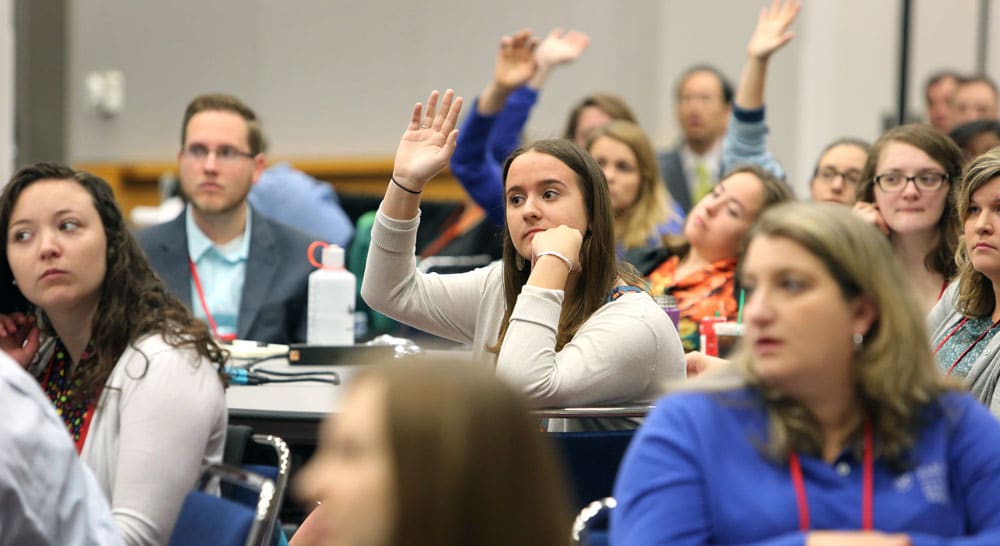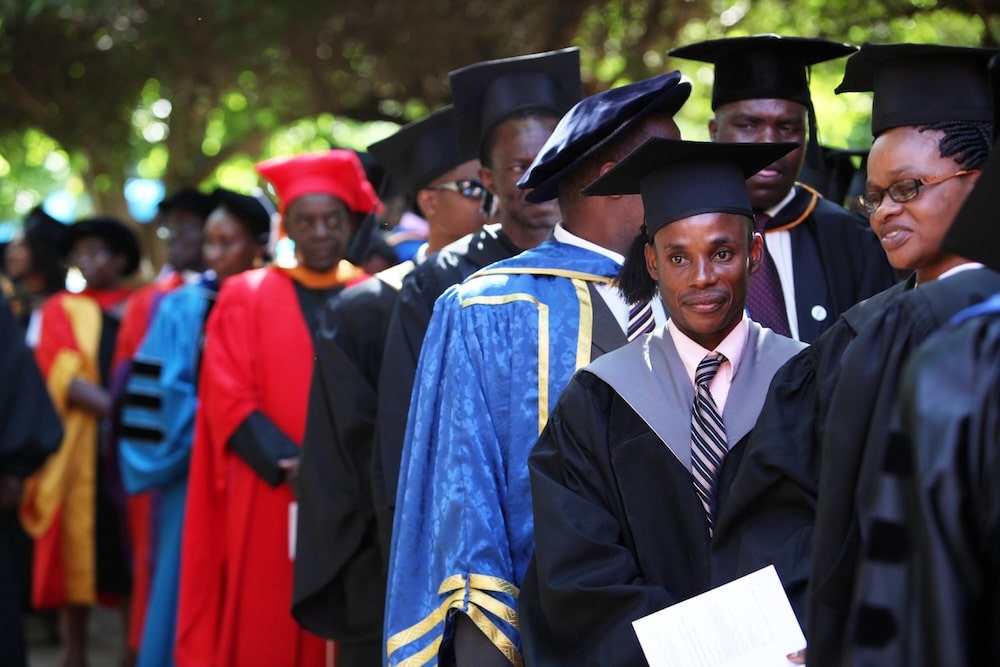Campus Ministry Leaders Focus on Creating Sustainable Ministries
A visionary model for rethinking how campus ministries can provide meaning and purpose and yet be sustainable was presented during a training event sponsored by the Office of Collegiate Ministry at the General Board of Higher Education and Ministry (GBHEM). As the leadership development agency of the denomination, the Annual Conference Leaders training supports GBHEM’s work to equip the current and future leaders of the church.
Collegiate ministry leaders from Annual Conferences and campuses heard Rev. Dr. Eric Law, founder and executive director of the Kaleidoscope Institute, describe how his Holy Currencies model can help campus ministries face financial constraints.
“One of the recurrent issues in campus ministry is, how it is sustainable,” said Law, who engaged attendees at the April 23-26 training event in what he calls “re-incubating campus ministry.”
Holy Currencies is a holistic model for stewardship and congregational vitality, which enables church leaders to understand, develop and utilize five other kinds of currencies besides money that are essential for creating sustainable and missional ministries.
Higher Education and Ministry and the Kaleidoscope Institute have worked together previously, and United Methodist congregations have found the Holy Currencies model to be an effective way to help leaders create sustainable churches.
“The Holy Currencies are the six blessings that are required for any ministry to be sustainable,” Law said. In addition to money, the holy currencies are time and place, gracious leadership, relationship, truth and wellness.
Participants in the four-day training session included members of the Annual Conference boards of higher education and campus ministry, collegiate ministers and board members of collegiate ministry programs.
Rev. Sherry Cothran, a United Methodist pastor and songwriter, led worship and devotional time. She also conducted an interactive workshop about innovative worship where she used the Lakota prayer ceremony of the sweat lodge as a model.
“We’re just trying to create sacred space for worship with one another in alternative ways that are outside the traditional brick-and-mortar structure,” said Cothran, who was lead singer of a rock band for 10 years before becoming a pastor.
She led participants through a Christ-centered structure of the four elements of sacred space: invitation, prayer, teaching through sharing and blessing.
“The challenge with campus ministries is always how to create sacred space, because we’re usually in informal situations, and everyone is coming and going. It’s very transient and hard to get people to focus,” Cothran said. “This provides a really quick, easy and simple way of focusing people that can also be done in a very informal space.”
In addition to experiencing the detailed sessions led by Law that covered how to use the Holy Currencies model, event participants were also offered six months of group coaching with Law on the implementation of the model.
“What if we think of campus ministry as an entrepreneurial ministry where campus ministry actually produces something, a product or service that people actually want and will be willing to pay for it. What would that look like?” Law said.
For example, Law, who previously served as a campus minister at the University of Southern California in Los Angeles, said he combined faculty, staff and students into a ministry with homeless people.
“We actually served food to the homeless every Wednesday. We worshiped together, and we ate together,” he said. “That’s how you rethink campus ministry as a dynamic place where energy flows, where money flows, where talent can be discovered and used, truth can be had and shared, and leadership can be developed.”
When a campus community operates that type of ministry, Law said students and staff will have a regular reflection on how the ministry connects with their relationship with God.
“If you have a rich person and a poor person sitting at a table, and they are talking to each other, something is bound to happen, which is kind of what Jesus did,” Law said.
About GBHEM: As the leadership development agency of The United Methodist Church, the General Board of Higher Education and Ministry’s mission is to build capacity for United Methodist lay and clergy leaders to discover, claim and flourish in Christ’s calling in their lives, by creating connections and providing resources to aid in recruitment, education, professional development and spiritual formation. Every elder, deacon and licensed local pastor benefits from our training and candidacy programs. Many young adults find help in clarifying their vocation and God’s call in their lives through our leadership and discernment programs. Follow us on Twitter and Facebook: @GBHEM.
Related Posts
Joy is that which compels us to celebrate life. We experience joy when, during the bleakest of circumstances, we move forward with the expectation that life continues to persist.
The General Board of Higher Education and Ministry (GBHEM) application portal opens on Wednesday, Jan. 7, for United Methodist students seeking scholarships for undergraduate and graduate study at colleges, universities, and seminaries worldwide.
Even though we experience peace as something that comes from outside of us, it begins within. It begins with us deciding to be fully present when in the company of a loved one. Peace begins with conquering our fears by deciding to increase our love.






